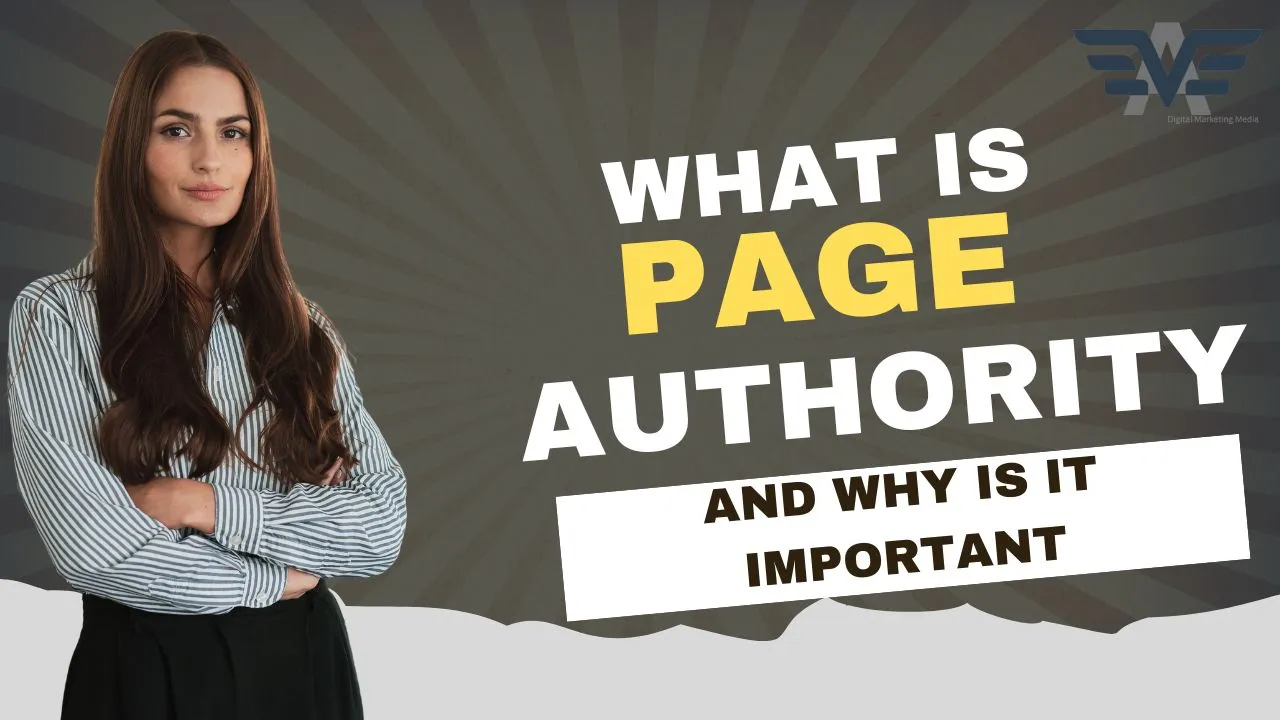What is Page Authority

Page Authority In the ever-evolving world of search engine optimization (SEO), understanding and improving your website’s authority is crucial for achieving higher rankings and increased organic traffic. One key metric that SEO professionals use to gauge a page’s potential to rank in search engine results is Authority (PA). In this comprehensive guide, we’ll dive deep into the concept of Page Authority, exploring its significance, measurement, and how you can leverage it to boost your SEO efforts.
What is Page Authority?
Authority is a predictive scoring system developed by Moz, a leading SEO software company, to estimate how well a specific web page is likely to rank in search engine results pages (SERPs). This score ranges from 1 to 100, with higher scores indicating a greater likelihood of ranking well.
Authority takes into account various factors that search engines consider when determining rankings, including:
- The quality and quantity of inbound links
- The relevance of the content
- The overall structure of the website
- The age of the domain
- Social signals
It’s important to note that Authority is not a metric used directly by search engines like Google. Instead, it’s a tool designed to help SEO professionals understand and compare the relative strength of different web pages.
How is Page Authority scored?
Page Authority is calculated using a machine learning algorithm that considers over 40 factors to predict a page’s ranking potential. The scoring system is logarithmic, which means it’s much easier to improve your score from 20 to 30 than it is to improve from 70 to 80.
Here’s a breakdown of the Authority scoring scale:
| Score Range | Description |
|---|---|
| 1-20 | Very low authority |
| 21-40 | Low authority |
| 41-60 | Moderate authority |
| 61-80 | High authority |
| 81-100 | Very high authority |
It’s worth noting that Page Authority is a relative metric, meaning it’s most useful when comparing your pages to those of your competitors or tracking changes over time.
What is a “good” Page Authority?
Determining what constitutes a “good” Authority score depends on various factors, including your industry, competition, and specific goals. However, here’s a general guideline:
| Page Authority Score | Interpretation |
|---|---|
| 1-30 | New or small websites |
| 31-50 | Established websites with some authority |
| 51-70 | Strong websites with significant authority |
| 71-90 | Very authoritative websites |
| 91-100 | Extremely authoritative, often major brands or institutions |
Remember that these ranges are not set in stone, and what’s considered “good” can vary depending on your specific niche and competitors. It’s more important to focus on improving your scores over time and outperforming your direct competitors rather than aiming for an arbitrary number.
Page Authority vs. Domain Authority
While Page and Domain Authority (DA) are related concepts, they measure different aspects of a website’s SEO strength. Here’s a comparison:
| Aspect | Page Authority | Domain Authority |
|---|---|---|
| Scope | Individual page | Entire domain |
| Focus | Predicts ranking potential of a specific URL | Predicts ranking potential of an entire domain |
| Factors | Considers page-specific factors | Considers domain-wide factors |
| Usage | Comparing specific pages | Comparing overall website strength |
Both metrics are valuable for different purposes. Authority is more useful when you want to analyze and compare individual pages, while Domain Authority gives you a broader view of a website’s overall SEO strength.
Where can you find Page Authority?
There are several ways to access Page Authority scores:
- Moz Pro: The most comprehensive tool for checking Authority, offering detailed analytics and competitor comparisons.
- MozBar: A free browser extension that displays Authority (and other metrics) directly in search results.
- Link Explorer: Moz’s free tool that allows you to check Page Authority for a limited number of URLs per month.
- Third-party SEO tools: Many SEO platforms incorporate Moz’s Page Authority metric into their own analysis tools.
Technical definition of Page Authority
For those interested in the more technical aspects, here’s a deeper dive into Page Authority:
Authority is calculated using a machine learning model that predicts how well a page will rank in search engine results. The model is trained on millions of search results and takes into account over 40 different factors, including:
- Number of linking root domains
- Total number of links
- MozRank
- MozTrust
- Spam Score
- Link quality and relevance
The exact algorithm is proprietary and regularly updated by Moz to maintain its accuracy in predicting search engine rankings.
How do I influence Page Authority?
Improving your Page Authority requires a holistic approach to SEO. Here are some key strategies:
- Build high-quality backlinks: Focus on earning links from reputable, relevant websites.
- Create valuable content: Produce informative, engaging content that naturally attracts links and social shares.
- Optimize on-page elements: Ensure your page titles, meta descriptions, headers, and content are well-optimized for your target keywords.
- Improve site structure: Implement a logical site architecture and internal linking strategy.
- Enhance user experience: Improve page load speed, mobile responsiveness, and overall usability.
- Leverage social media: While not a direct ranking factor, social signals can indirectly impact your Page Authority.
- Remove low-quality links: Regularly audit your backlink profile and disavow any spammy or low-quality links.
Remember that improving Page Authority takes time and consistent effort. Focus on implementing sustainable, white-hat SEO practices for long-term success.
Why did my Page Authority change?
Page Authority scores can fluctuate for several reasons:
- Algorithm updates: Moz periodically updates its Page Authority algorithm to improve accuracy.
- Changes in your link profile: Gaining or losing backlinks can impact your score.
- Competitor landscape shifts: As your competitors’ pages change, your relative Page Authority may be affected.
- On-page changes: Significant alterations to your page’s content or structure can influence its authority.
- Domain-wide changes: Major changes to your overall website can impact individual page scores.
It’s important to track your Page Authority over time and in relation to your competitors, rather than focusing on small fluctuations.
The Three Levels of Authority
When discussing authority in SEO, it’s helpful to understand the three main levels:
- Page-Level Authority: This is what Page Authority measures – the strength and ranking potential of an individual URL.
- Domain-Level Authority: Represented by Domain Authority, this measures the overall strength of an entire domain.
- Topic-Level Authority: This refers to a website’s perceived expertise and trustworthiness in a specific subject area.
Here’s a table summarizing these levels:
| Authority Level | Metric | Scope | Importance |
|---|---|---|---|
| Page-Level | Page Authority | Individual URL | High for specific page rankings |
| Domain-Level | Domain Authority | Entire website | High for overall site performance |
| Topic-Level | N/A (qualitative) | Content areas | Critical for E-A-T and YMYL sites |
Understanding and improving all three levels of authority can significantly boost your overall SEO performance.
What Is Link Authority?
Link Authority is a concept closely related to Page Authority. It refers to the SEO value that a link passes from one page to another. Factors that influence Link Authority include:
- The linking page’s own Page Authority
- The relevance of the linking page to the linked page
- The anchor text used in the link
- The position of the link on the page
- Whether the link is followed or nofollowed
While there’s no specific metric called “Link Authority,” understanding this concept is crucial for effective link building and improving your Authority.
Improve and Analyze Page Authority
To effectively improve and analyze your Page Authority, consider the following steps:
- Conduct regular audits: Use tools like Moz Pro or SEMrush to perform comprehensive site audits and identify areas for improvement.
- Analyze your competitors: Compare your Page Authority scores with those of your top competitors to set realistic goals and identify opportunities.
- Focus on content quality: Create in-depth, valuable content that naturally attracts links and engagement.
- Implement a link building strategy: Develop a sustainable approach to earning high-quality, relevant backlinks.
- Optimize technical SEO: Ensure your website is technically sound, with fast load times, mobile responsiveness, and proper indexing.
- Monitor changes: Regularly track your Page Authority scores and investigate any significant changes.
- Diversify your link profile: Aim for a mix of different types of backlinks from various relevant sources.
Here’s a table summarizing key actions and their potential impact on Authority:
| Action | Potential Impact | Difficulty |
|---|---|---|
| Creating high-quality content | High | Medium |
| Earning authoritative backlinks | Very High | High |
| Improving site structure | Medium | Medium |
| Enhancing user experience | Medium | Medium |
| Optimizing on-page elements | Medium | Low |
| Leveraging social media | Low to Medium | Low |
| Removing toxic backlinks | Medium | Medium |
By focusing on these areas and consistently working to improve your overall SEO strategy, you can steadily increase your Page Authority and, in turn, your search engine rankings.
Conclusion
Page Authority is a powerful metric for understanding and improving your website’s SEO performance. By grasping its nuances, consistently working on your content quality, building a strong backlink profile, and optimizing your overall site structure, you can boost your Authority and achieve better search engine rankings.
Remember that improving Page Authority is a long-term process that requires patience and persistence. Focus on creating value for your users, and the authority will follow. Keep tracking your progress, analyzing your competitors, and adapting your strategies as the SEO landscape evolves.
With this comprehensive understanding of Page Authority, you’re now equipped to make informed decisions and take strategic actions to enhance your website’s SEO performance. Happy optimizing! technical SEO






